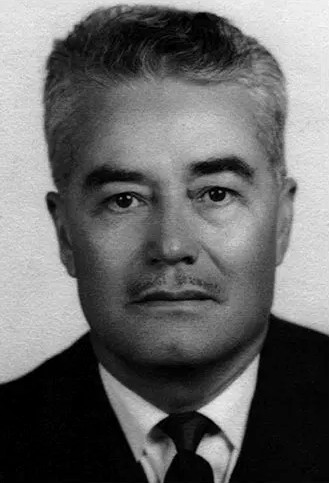Gonzalo Rubio Orbe (Otavalo, Imbabura, June 29, 1909 – October 24, 1994) was an Ecuadorian anthropologist, historian, biographer and educator. He was a protégé of Pío Jaramillo Alvarado, a key leader of the indigenista movement. Rubio’s works represent some of the earliest anthropological assessments of indigenous societies in Ecuador. His principal book is Los Indios Ecuatorianos (1987; The Ecuadorian Indians). From 1971 to 1977, he directed the Inter-American Indian Institute (III), based in Mexico. He also wrote biographies on notable Ecuadorians, such as Luis Felipe Borja and Eugenio Espejo. An indefatigable educator, he continued to lecture to university students until his dying day.
Parents
- Abel Rubio
- Virginia Orbe
Organizational Affiliations
- Founder of the National Union of Educators (UNE)
- Member of the Ecuadorian Academy of Education
- Member of the National Academy of History
- Member of the House of Ecuadorian Culture
Education
- As a child, he mixed his studies at the Sisters of Charity School (Escuela de las Hermanas de Caridad) with his work in agriculture, which led him to know the essence of the exploited Indian.
- Rubio received a PhD in Education from the Central University of Ecuador.
Positions held
- Director of the Juan Montalvo Normal School in Quito
- National Director of Education
- Subdirector of the The National Board for Economic Planning and Coordination (Junta Nacional de Planificación y Coordinador General Económico)
Politics
In 1932 he became a member of the Ecuadorian Socialist Party.
Death
Gonzalo Rubio Orbe died suddenly of a heart attack after climbing 8 flights of stairs to deliver a lecture, owing to a broken elevator.
Works
- Punyaro: Estudio de antropología social y cultural de una comunidad indígena y mestiza del Ecuador (1956)
- La cuestión indígena (1965)
- Educación fundamental (1954)
- Rumiñahui, Ati II. (1944)
- Nuestros indios, estudio geográfico, histórico y social de de [sic] los indios ecuatorianos, especialmente aplicado a la provincia de Imbabura (1946)
- Aspectos indígenas (1965)
- Promociones indígenas en América (1957)
- El pensamiento de la juventud universitaria de Quito (1966)
- El indio en el Ecuador: síntesis histórica (1949)
- Población rural ecuatoriana (1966)
- Marco de referencia de la alfabetización de la población rural indígena en el proceso de desarrollo rural (1978)
- Servicios e instituciones sociales en el Ecuador (1948)
- Francisco Eugenio Javier de Santa Cruz y Espejo, biografía (1950)
- Luis Felipe Borja: biografía (1947)
- Los indios ecuatorianos: Evolución histórica y políticas indigenistas (1987)

